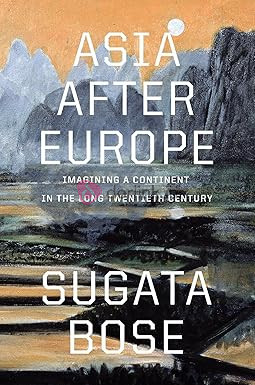Writer : Sugata Bose
- Shipping Time : 10 Days
- Policy : Return/Cancellation?
You can return physically damaged products or wrong items delivered within 24 hours with photo/video proof.
Contact Customer Support for return initiation and receive return authorization via email. Securely package for return.
Refunds for eligible returns are processed within 7-10 business days via Bank Transfer.
Order cancellation allowed within 24 hours of placing it. Standard policy not applicable for undamaged/wrong product cases. Detailed info. - Genre : Literature>Novels & Novellas
- Publication Year : 2024
- ISBN No : 978-0674297616
- Binding : No Binding Available
- Pages : 288
- Weight : 499 gms
- Height x Width x Depth : 8.5x5.5x0.5 Inch
If so, it will be notified
About the Book
Asia After Europe: A Century of Shifting Power and Identity
The 20th century witnessed a profound shift in global power, marked by the political and economic rise of Asia. In Asia After Europe, Sugata Bose presents a compelling new history of how Asians have defined their identity and challenged Euro-American models of universalism.
Through a sweeping yet intimate narrative, Bose explores the circulation of ideas, art, and political movements across colonial and national borders. He traces:
Early Asian solidarity before Japan’s victory over Russia in 1905
Revolutionary collaborations during and after World War I, as Asian universalism took shape alongside Wilsonian internationalism and Bolshevism
The impact of the Great Depression and World War II on visions of Asia
Postwar persistence of Asian universalism, even as postcolonial states adopted European models
From elites to common people, diverse Asian universalisms emerged and fractured through periods of poverty, prosperity, and conflict. While nationalist rivalries—often shaped by religion and exclusion—have endured, Bose reflects on the ongoing potential for political thought beyond European frameworks of nationhood and reason.
A bold and thought-provoking work, Asia After Europe redefines the intellectual and cultural history of the modern world.

